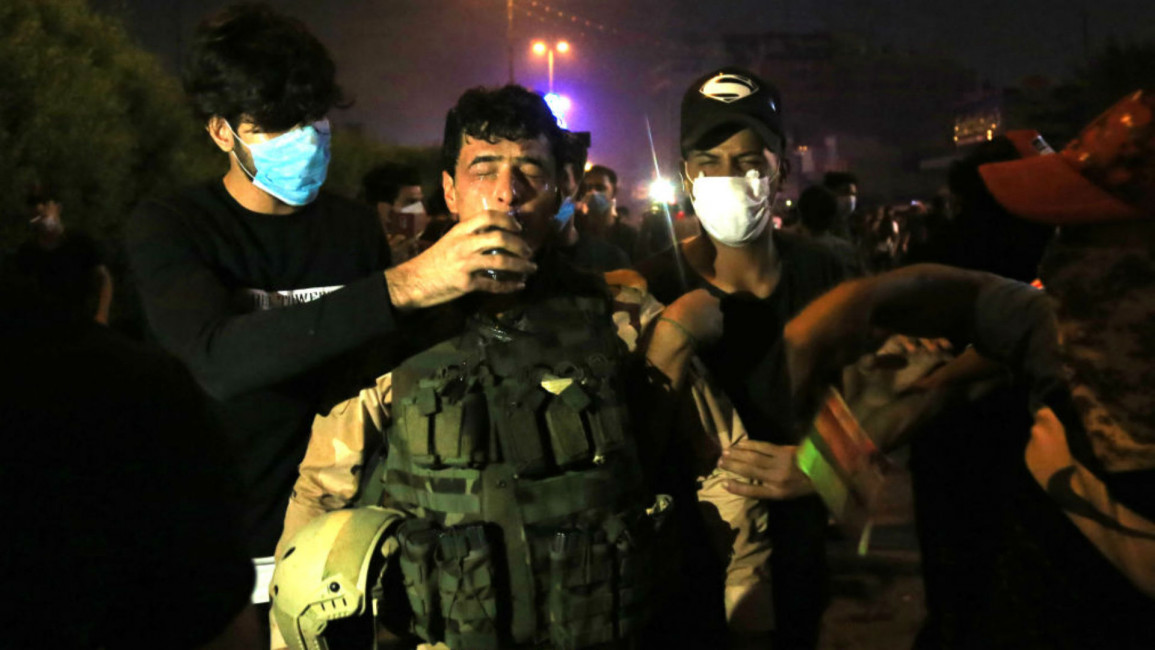Follow us on Twitter: @The_NewArab
Iraqi protesters shot dead in Karbala, after curfew crackdown
At least 18 protesters were shot dead on Monday evening and Tuesday morning in the Iraqi city of Karbala, hours after the army announced a nationwide curfew to quell popular anti-government demonstrations that have spread through the country.
The Iraqi High Commission for Human Rights reported that 18 people were killed in the central Iraqi city, after security forces opened fire on protesters.
A video from Karbala, shared widely on social media, showed protesters fleeing as security forces opened fire on crowds with hundreds injured in attacks on demonstrations across the country.
The footage shows unarmed men lying on the ground with bullet wounds, with some Iraqi journalists reporting scores dead in the crackdown by militias.
Another video, also said to be from Karbala, showed masked men beating a protester.
Karbala is one Islam's holiest cities due to being the resting place of Hussein, one of the Prophet Muhammed's grandsons who is revered in particular by Shia Muslims.
The central Iraqi city is also known as a stronghold of Iran-linked militias, who have come to dominated the security forces in Iraq.
Weeks of anti-government protests have been mainly concentrated in Shia-majority areas, including the capital Baghdad, Basra and Karbala.
|
|
The protests have been largely spontaneous and led by young Iraqis angry at poor public services, government corruption, and unemployment in the oil-rich country.
Students at schools and universities across Iraq went on strike on Monday, with one woman killed after being reportedly hit in the head by a tear gas canister fired by security forces.
Two more Iraqi protesters were killed on Monday and more than 100 injured, as militias and security forces attempted to crush the anti-government demonstrations and acts of civil disobedience.
Iraqi authorities announced a nationwide curfew from midnight until 6am in a bid to quell the unrest until further notice.
Prime Minister Adel Abdel-Mahdi has promised a reforms but activists said the steps do not go far enough to tackle endemic corruption that plagues much of the country.
Among the reforms announced by parliament are the cancellation of financial bonuses for top officials, the dissolution of governorate councils pending elections, and the creation of a parliamentary committee to make amendments to the Iraqi constitution.
On Monday, Iraq's parliament speaker Salim Jabouri called on security forces to "protect the lives of protesters and public and private property".
The death toll for the protesters has now passed 100 following weeks of protests, this appeal appears to have gone unheeded.
Populist cleric Muqtada Al-Sadr, who leads the Al-Sairoon political bloc, called for early elections on Monday which he wants overseen by the UN.
At least 75 people have been killed - not including the death toll from Monday night's protests - since demonstrations erupted on 1 October.
 |



